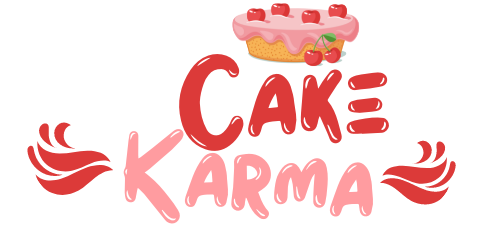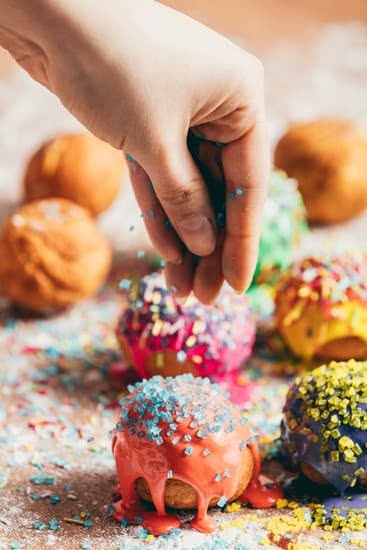Are you interested in learning how to become a cake decorator? As one of the most delightful and creative careers in the culinary arts, cake decorating is a popular choice for those with a passion for baking and design.
In this article, we will explore the various paths to becoming a cake decorator, the skills and tools required for success in this field, and how to find job opportunities and build a strong clientele. Whether you aspire to work in a bakery, start your own business, or create stunning cakes for special events, mastering the art of cake decorating can lead to a fulfilling and rewarding career.
Becoming a skilled cake decorator involves more than just creating visually appealing cakes – it requires precision, creativity, and attention to detail. As demand for custom-designed cakes continues to grow, so does the need for talented decorators who can bring their clients’ visions to life. Whether you dream of working in an established bakery or starting your own cake decorating business, acquiring the necessary skills and knowledge is essential for success in this field.
In the following sections, we will delve into the education and training options available to aspiring cake decorators, as well as the specific skills needed to excel in this profession. We will also discuss the essential tools and equipment required for cake decorating, tips on building a strong portfolio, finding job opportunities, networking and marketing strategies, and the importance of continuing education in this ever-evolving industry.
If you are passionate about creating beautiful edible works of art and are considering pursuing a career as a cake decorator, read on to discover everything you need to know about getting started in this exciting field.
Education and Training
For those aspiring to become a cake decorator, there are several different paths that you can take to gain the necessary education and training. Whether you prefer a hands-on approach or the flexibility of online learning, there are options available to suit your individual needs and circumstances.
1. Culinary School:
Attending a culinary school that offers specialized courses in baking and pastry arts is a popular choice for many individuals pursuing a career in cake decorating. These programs typically provide comprehensive training in various techniques, including icing application, sugar work, and fondant decoration. Additionally, culinary schools often offer opportunities for internships or externships at bakeries or catering companies, allowing students to gain valuable real-world experience.
2. Apprenticeships:
Another way to become a proficient cake decorator is through apprenticeships with experienced professionals in the industry. This hands-on approach allows aspiring decorators to learn directly from master bakers and pastry chefs while honing their skills in a practical setting. Apprenticeships provide invaluable mentorship, guidance, and the opportunity to develop a strong foundation in cake decorating techniques.
3. Online Courses:
For those who require flexibility in their schedule or prefer self-paced learning, online courses can be an excellent option for acquiring the necessary knowledge and skills to become a successful cake decorator. Many reputable platforms offer comprehensive programs specifically tailored to aspiring cake decorators, covering topics such as piping techniques, color theory, and advanced design concepts.
By pursuing formal education through culinary school, hands-on experience via apprenticeships, or the convenience of online courses, individuals can effectively develop the expertise needed to thrive as professional cake decorators.
Required Skills
Becoming a successful cake decorator requires a unique set of skills that go beyond simply knowing how to bake and frost a cake. Creativity is at the forefront of these skills, as it’s essential to be able to envision and execute intricate designs that will captivate clients. Imagination and originality are key in creating custom cakes that stand out and leave a lasting impression.
Additionally, attention to detail is crucial in ensuring that every aspect of the cake, from the decorations to the finishing touches, is flawless. This meticulousness is what sets apart great cake decorators from good ones.
Moreover, hand-eye coordination plays a vital role in achieving precision when working with delicate tools and decorating techniques. It’s important for cake decorators to have steady hands and the ability to maneuver piping bags and other decorating tools with finesse. Practice and patience are essential in developing this skill, as mastering techniques like intricate piping work and fondant modeling requires hours of dedicated practice.
Lastly, effective time management is also an important skill for cake decorators. Meeting deadlines while juggling multiple orders is a common challenge in this profession. Therefore, being organized and able to prioritize tasks efficiently is crucial for success.
| Skills | Description |
|---|---|
| Creativity | Essential for envisioning and executing intricate designs. |
| Attention to Detail | Necessary for ensuring flawless decorations on cakes. |
| Hand-Eye Coordination | Vital for achieving precision when working with delicate tools. |
Tools and Equipment
Becoming a successful cake decorator requires more than just talent and creativity. It also requires the right tools and equipment to bring your designs to life. Here is a comprehensive list of essential tools and equipment needed for cake decorating:
- Piping Bags: These disposable or reusable bags are essential for applying frosting, icing, and other decorative elements to a cake. They come in various sizes and materials, such as plastic or cloth, and can be fitted with different tips for various designs.
- Tips: Cake decorating tips come in a wide range of shapes and sizes, each creating a unique design when used with a piping bag. From leaf tips to star tips to round tips, having a variety of tips on hand will allow you to create an array of beautiful designs on your cakes.
- Turntables: A turntable is essential for smoothly rotating the cake while decorating. This allows for easier access to all sides of the cake without having to constantly pick it up and move it around.
- Offset Spatula: An offset spatula is used for spreading frosting evenly on the cake’s surface and can also be used for creating smooth edges and clean lines.
- Fondant Tools: If you work with fondant, you’ll need a set of fondant tools including rolling pins, cutters, embossers, and smoothers to shape, mold, and decorate with this versatile material.
Having the right tools on hand is crucial for any aspiring cake decorator. Understanding how to use these tools effectively will help take your skills to the next level. Whether you’re working in a professional bakery or starting your own business from home, investing in high-quality equipment is essential for success in this creative field.
Building a Portfolio
Building a strong portfolio is essential for anyone looking to become a successful cake decorator. A portfolio serves as a visual representation of your skills and style, allowing potential clients or employers to see the quality of your work. Here are some tips on how to build a strong portfolio that effectively showcases your cake decorating skills.
Include Diverse Projects
When creating your portfolio, it’s important to showcase a diverse range of projects. Include pictures of cakes with different themes, styles, and techniques. This will demonstrate your versatility as a cake decorator and show that you are capable of taking on a variety of projects.
High-Quality Photos
It’s crucial to ensure that the photos of your cake creations are of high quality. Invest in decent photography equipment or hire a professional photographer to capture clear, well-lit images of your cakes. Blurry or poorly lit photos can detract from the overall presentation of your portfolio.
Before-and-After Images
Including before-and-after images in your portfolio can be incredibly impactful. Showcasing the transformation from plain cake layers to beautifully decorated masterpieces can effectively highlight your skills and attention to detail.
By following these tips and curating a visually appealing and diverse portfolio, you can effectively showcase your cake decorating skills and attract potential clients or employers. Remember that the goal is to impress anyone viewing your portfolio and leave them eager to work with you.
Finding Job Opportunities
Once you have honed your cake decorating skills and are ready to embark on a career in this industry, the next step is finding job opportunities. There are several avenues you can explore to kickstart your career as a cake decorator.
One option is to look for job openings at bakeries. Many bakeries hire cake decorators to create custom cakes for special occasions such as weddings, birthdays, and anniversaries. Working at a bakery not only allows you to gain valuable experience but also provides a steady stream of cake decorating projects.
Catering companies are another excellent source of job opportunities for cake decorators. These companies often require the talents of skilled decorators to design and create visually stunning cakes for their events. Additionally, working with catering companies may expose you to high-profile events and clientele, helping you expand your portfolio and network within the industry.
Furthermore, independent businesses such as event planning agencies or gourmet food shops may also seek the services of cake decorators. By reaching out to these businesses directly or through online platforms, you can secure freelance or part-time work that allows you to showcase your creativity and expertise in cake decorating.
| Job Opportunities | Description |
|---|---|
| Bakeries | Hire cake decorators to create custom cakes for special occasions. |
| Catering Companies | Require skilled decorators to design visually stunning cakes for events. |
| Independent Businesses | Events planning agencies or gourmet food shops may seek the services of cake decorators. |
Networking and Marketing
Importance of Networking
Networking is a crucial aspect of becoming a successful cake decorator. Building relationships with other professionals in the industry can lead to valuable opportunities, such as collaborations, referrals, and mentorships. Networking allows you to connect with potential clients, suppliers, and even employers. Attending industry events, joining professional organizations, and participating in workshops are great ways to expand your network as a cake decorator.
Effective Marketing Strategies
In addition to networking, effective marketing is essential for growing your cake decorating business. A strong online presence through social media platforms like Instagram and Facebook can help showcase your work and attract potential clients. Creating a professional website that highlights your portfolio, client testimonials, and contact information is also important for marketing your services. Utilizing search engine optimization (SEO) techniques can help increase the visibility of your website and attract more organic traffic.
Promoting Your Services
When it comes to promoting your services as a cake decorator, offering promotions or discounts for first-time clients can be an effective way to attract new business. Participating in local fairs or events where you can exhibit your skills and network with potential clients is another great strategy for promoting your services. Collaborating with wedding planners or event coordinators can also be beneficial in securing more cake decorating opportunities.
By mastering networking and marketing strategies, aspiring cake decorators can effectively promote their services and build a successful career in the industry. Whether working independently or seeking employment at a bakery or catering company, these skills are fundamental for gaining visibility and attracting clientele within the competitive field of cake decorating.
Continuing Education
In the ever-evolving and competitive field of cake decorating, continuous learning and professional development are crucial to stay ahead of the game. Aspiring cake decorators should consider taking relevant workshops, seminars, and certifications to further hone their craft and stay updated on the latest trends and techniques. These opportunities provide invaluable knowledge and skills that can set you apart from the competition and open doors to new and exciting career prospects.
Whether it’s learning advanced fondant techniques, mastering sugar flower creations, or understanding the intricacies of cake design, workshops and seminars offer specialized training that can take your cake decorating skills to the next level. Additionally, obtaining certifications in areas such as food safety or advanced pastry arts can enhance your credibility as a professional cake decorator. By continuously seeking out educational opportunities, you show potential clients or employers your dedication to excellence and ongoing improvement in your craft.
Furthermore, attending these events also provides an excellent networking opportunity within the cake decorating community. Interacting with fellow professionals in the industry can lead to valuable connections, mentorship opportunities, and potential collaborations.
Networking at these events can also help you stay informed about job openings or freelance opportunities within the industry. Ultimately, investing in continuous education demonstrates your commitment to becoming a reputable and skilled cake decorator-one who is always eager to learn new techniques, expand their expertise, and contribute fresh ideas to this vibrant industry.
Frequently Asked Questions
What Qualifications Do I Need to Be a Cake Decorator?
To be a cake decorator, you don’t necessarily need formal qualifications, but having a certification or degree from a culinary school can give you an edge in the industry. Additionally, undergoing training or apprenticeship with an experienced cake decorator is beneficial.
How Do I Start Being a Cake Decorator?
Starting as a cake decorator typically involves gaining experience through practice and learning from more experienced decorators. You can start by taking baking and pastry courses to learn the basics of cake decorating, experimenting on your own, and seeking mentorship or internships with established decorators.
How Long Does It Take to Become a Professional Cake Decorator?
The duration to become a professional cake decorator varies depending on the individual’s learning pace and the type of training they receive. It could take a few months to several years to gain enough skills and experience to be considered a professional in the field. Apprenticeship programs may also affect the timeline for becoming a professional cake decorator.

Welcome to our cake decorating blog! My name is Destiny Flores, and I am the proud owner of a cake decorating business named Cake Karma. Our mission is to provide delicious, beautiful cakes for all occasions. We specialize in creating custom cakes that are tailored specifically to each customer’s individual needs and tastes.





